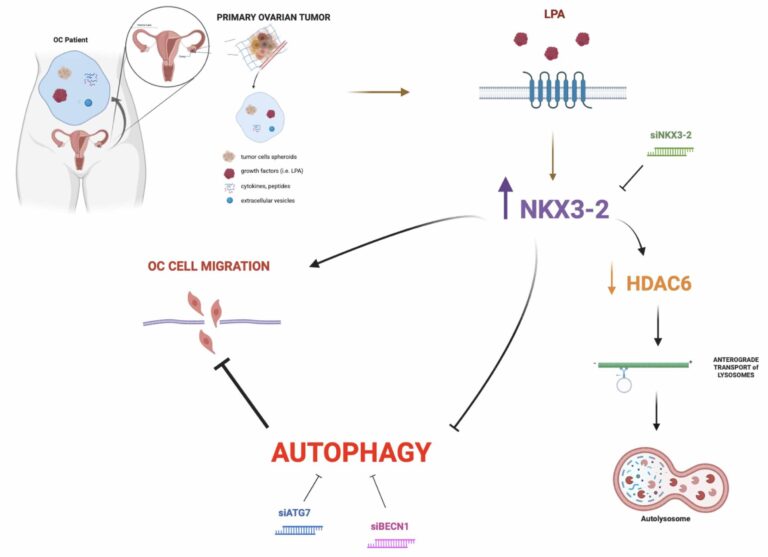Ferraresi and Ghezzi et al. 2024
The following work represents a substantial part of my work conducted in Prof. Isidoro lab during my Master Thesis research period.
Starting from existing data of the lab, we decided to further study NKX3-2, a transcription factor (TF) poorly studied in cancer. We hypothesised that it might play a pro-tumorigenic role because of its upregulation upon stimulation with lysophosphatidic acid (LPA), a molecule often found in the ascites of ovarian cancer (OC) patients.
By performing gene silencing experiments with migration and immunofluorescence assays, we demonstrated that indeed NKX3-2 is a strong mediator of ovarian cancer cell migration, thus attributing to this poorly studied TF novel pro-tumorigenic functions.
Prof. Isidoro’s lab specializes in the study of autophagy, a cellular catabolic process that ensures homeostasis maintenance. Therefore, we further investigated any potential connection between NKX3-2 and autophagy, considering that LPA, which upregulates NKX3-2, is a strong inhibitor of autophagy.
Interestingly, we found that:
- Knockdown of NKX3-2 increased the generation of autophagy components as well as the actively ongoing autophagic process, thus demonstrating that NKX3-2 is a negative regulator of autophagy.
- NKX3-2 can inhibit autophagy by down-regulating the HDAC6-mediated positioning of lysosomes, which in turn disrupts the normal process of autophagosome and lysosome fusion.
Finally, knocking down autophagy in addition to NKX3-2 restored the ability of cancer cells to migrate, thus indicating that NKX3-2 can promote OC cell migration by impairing autophagy.
Link to the original article: https://www.mdpi.com/3026894
